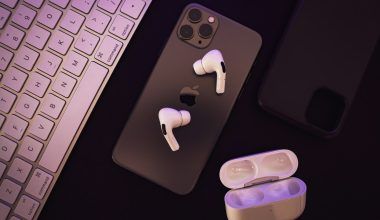In the digital age, music is more accessible than ever. Creators can share their work with millions, but this convenience comes with risks. Copyright infringement is a major concern for musicians, producers, and content creators. To safeguard their work, many rely on a music copyright checker.
A music copyright checker helps identify if a track is original or if it infringes on existing copyrights. It’s an essential tool for anyone working with music, ensuring legal compliance and protecting intellectual property. This blog explores what a music copyright checker is, why it’s important, and how to use it effectively.
What Is a Music Copyright Checker?
A music copyright checker is a tool or software that analyzes a track to determine whether it contains copyrighted material. These tools are designed to:
- Detect similarities between two or more pieces of music.
- Identify whether a piece of music is registered under copyright laws.
- Help users avoid copyright disputes or claims.
Using a music copyright checker is critical for avoiding legal issues and ensuring fair use in music production and distribution.
Why Is Music Copyright Checking Important?
Copyright protects the rights of creators, ensuring they receive credit and compensation for their work. Without proper checks, you could unknowingly use copyrighted material, leading to:
- Legal Consequences
Copyright infringement can result in lawsuits, fines, and damaged reputations. - Content Removal
Platforms like YouTube and Spotify may remove your content if it violates copyright rules. - Monetization Issues
Infringing tracks can prevent you from earning revenue through ads, streaming, or sales.
A reliable music copyright checker can help you avoid these risks.
How Does a Music Copyright Checker Work?
Music copyright checkers typically work by analyzing the following:
- Melody and Chord Progressions
These are often unique to a song and form its core identity. - Lyrics
Checking for identical or similar phrases can prevent lyric-related claims. - Audio Fingerprinting
Advanced tools create a digital “fingerprint” of your track and compare it with copyrighted works. - Sampling and Beats
If your music includes samples, a checker can identify whether they are copyrighted.
Popular Music Copyright Checkers
There are several tools available for creators to verify their music. Here are some of the best music copyright checkers:
1. TuneSat
- Detects unauthorized uses of your music in TV, radio, and online content.
- Provides detailed reports for copyright claims.
2. Audible Magic
- Offers audio fingerprinting for fast and accurate copyright verification.
- Ideal for businesses and large-scale creators.
3. SoundExchange
- Focuses on digital performance royalties.
- Ensures your track isn’t being used without proper licensing.
4. Shazam
- While primarily a music discovery app, it helps identify copyrighted songs based on audio samples.
5. YouTube Content ID
- Automatically scans uploaded content for copyrighted material.
- Allows rights holders to monetize or block infringing content.
Each of these tools has unique features, making it easier for creators to protect their work.
How to Use a Music Copyright Checker
Using a music copyright checker is straightforward. Here’s a step-by-step guide:
- Upload Your Track
Provide the tool with your audio file for analysis. - Run the Analysis
The tool will compare your track with its database of copyrighted music. - Review the Results
Check for flagged sections, such as similar melodies, lyrics, or samples. - Take Action
If the checker identifies potential issues, modify your track or obtain proper licensing. - Register Your Work
Once your track is cleared, register it with copyright authorities to protect it further.
Common Challenges with Music Copyright
Despite using a music copyright checker, creators may face challenges such as:
- Gray Areas in Fair Use
Some uses of copyrighted music may fall under “fair use,” but the boundaries are often unclear. - Ambiguities in Sampling
Using short clips or modified samples can still lead to disputes. - International Copyright Laws
Copyright laws vary by country, complicating compliance for global creators.
A music copyright checker simplifies the process, but understanding copyright laws is equally important.
The Role of Music Copyright in Extended Plays (EPs)
For artists releasing extended plays (EPs), copyright protection is crucial. An EP typically contains multiple tracks, increasing the chances of unintentional infringement.
Here’s how a music copyright checker helps:
- Verifies originality for each track.
- Ensures that sampled or remixed content is properly licensed.
- Protects your EP from unauthorized use.
By using a checker, you can confidently upload your EP to platforms like Beatport, Spotify, and Apple Music.
Music Copyright Checker for Content Creators
Content creators on platforms like YouTube, Twitch, and Instagram often use music in their videos. A music copyright checker ensures that the chosen tracks won’t trigger copyright claims.
Tips for Content Creators:
- Use royalty-free music or licensed tracks.
- Verify all music before uploading videos.
- Consider platforms like Epidemic Sound or Artlist for pre-cleared music.
How to Register Your Music for Copyright Protection
After verifying your music with a copyright checker, register your work with an official copyright office. Steps include:
- Prepare Your Materials
Gather your track, lyrics, and documentation. - Submit Your Application
Visit your country’s copyright office website and follow the registration process. - Pay the Fee
Most copyright registrations require a small fee. - Receive Your Certificate
Once approved, you’ll receive official documentation of your copyright.
This process ensures legal protection for your music.
Conclusion
A music copyright checker is an invaluable tool for artists, producers, and content creators. It simplifies the process of verifying originality, ensuring legal compliance, and protecting your work.
Whether you’re a seasoned musician or just starting, using a music copyright checker helps you navigate the complexities of copyright laws. By taking this step, you can focus on what matters most: creating and sharing incredible music.
Related Articles:
For further reading, explore these related articles:
- How to Copyright: Easy Steps to Protect Your Work
- Copyright Songs: Protecting and Using Music Legally Explained
For additional resources on music marketing and distribution, visit Deliver My Tune.






